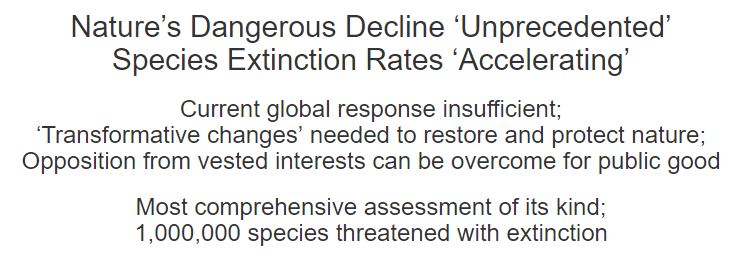

Headlines from IPBES Report
Coming soon after an earlier report that warned of a sixth mass extinction event, along with the tab to prevent it, comes a fresh and stark warning from the UN. Warning that over one million of the planet’s eight million species are threatened with extinction by humans, a team of 145 scientists from 50 countries who collaborated for the report that released yesterday calling for urgent action.
1. The mandate for blending Compressed Biogas (CBG) with natural gas has come into effect…
Andhra Pradesh is striving towards greening its energy sector with quite some speed. In a…
With an objective to bolster India’s green energy goals, a Tripartite Agreement has been signed…
The Union MNRE Minister Pralhad Joshi launched the Green Hydrogen Certification Scheme of India (GHCI)…
India’s energy conglomerate Bharat Petroleum Corporation Limited (BPCL) has commissioned a 5MW green hydrogen plant…
In a historical development, the European Space Agency (ESA) has successfully launched its pioneering ‘Biomass’…